Learn About The Plastics Treaty ➝
Protect our planet! Last chance to join the call for a strong Plastics Treaty. SIGN THE PETITION NOW.
On 15 September 2022, CMA CGM renewed their three-year partnership with the Plastic Flamingo (PLAF) to continue production of construction materials made from plastic sachet waste and riverine plastics. This partnership pledges to tackle river and land-based plastic pollution, yet investing in plastic bricks, planks, and boards is a step in the wrong direction.
Downcycling, whether this involves transforming plastic waste into alternate materials, is simply a distraction from pursuing real solutions, such as significantly reducing plastic production, particularly of sachets and other single-use plastics. Once transformed into plastic bricks or roads or even school chairs, the products cannot be further recycled and will likely end up in landfills or burned in incinerators at the end of their life cycle.
Coleen Salamat, Ecowaste, Philippines:
“Plastic bricks or roads, in addition, can lead to leaching of microplastics and hazardous chemicals, especially when exposed to heat and ultraviolet light. Recent studies have shown evidence of micro and nano plastics at the bottom part of lungs and even in blood. Microplastics and chemicals like cadmium can make their way into the soil and affect agricultural productivity, and also reach waterways where they threaten aquatic plant and animal life."
In the Philippines, downcycled plastic materials are also touted as solutions to two very real problems: a shortage of shelters for its burgeoning population; and landfills of low-quality, non-recyclable plastic waste exported by the West. However, downcycled material is unsuitable for load-bearing structures, and any contamination from food waste or organic materials can result in methane, which eventually breaks down the material. In some cases, eco-bricks also pose a fire hazard. Downcycled materials cannot address the cause of plastic pollution - indiscriminate production, consumption and disposal.
In April 2022, the CMA CGM Group wrote a letter to its customers, announcing that it will no longer carry plastic waste on its ships, effective June 1. The landmark decision was in response to a call from the Basel Action Network (BAN), The Last Beach Cleanup, and 50 other organisations for major shipping lines to stop transporting plastic waste to countries that do not have adequate capacity to handle such discards safely. In importing countries, local recyclers often have limited capacity in terms of handling both domestic and imported plastic waste. Moreover, these countries increasingly rely on co-incinerating plastic waste, regardless of origin, in cement kilns.
Marian Ledesma, Greenpeace Philippines:
"CMA CGM took one step forward but regressed two steps back. Earlier this year, they made a laudable commitment to stop shipping plastic waste to support the fight against plastic waste trade. But now they're helping justify the continued proliferation of plastic waste with their partnership with Plastic Flamingo.
Converting plastic waste into construction materials justifies continued production and dependence on single-use plastics and does not prevent systemic harms caused by the plastic industry during production, including health risks from potential exposure to microplastics and toxic chemicals. CMA CGM should stop supporting such schemes and instead promote upstream solutions that will allow communities to shift away from plastics to reuse."
In an earlier statement, the CMA CGM group also committed to “prevent(ing) this type of waste from being exported to destinations where sorting, recycling or recovery cannot be assured." This demonstrates the company’s commitment to continue CSR initiatives to protect the environment, conserve biodiversity, and develop trade that is more responsible and fair for everyone and for the planet.
To this end, we urge the CMA CGM Group to abandon downcycling projects and instead support single-use plastic regulations in countries where they are operating. For CSR projects, they can also consider investing in Zero Waste programs, which aim to minimise municipal waste streams, and help local governments save money, reduce waste generation and create jobs. There are BETTER WAYS to address plastic pollution, we urge you to choose wisely.
Press Contact:
About Break Free From Plastic – #breakfreefromplastic is a global movement envisioning a future free from plastic pollution. Since its launch in 2016, more than 2,500 organizations representing millions of supporters around the world have joined the movement to demand massive reductions in single-use plastics and push for lasting solutions to the plastic pollution crisis. BFFP member organizations and individuals share the shared values of environmental protection and social justice and work together through a holistic approach to bring about systemic change. This means tackling plastic pollution across the whole plastics value chain—from extraction to disposal—focusing on prevention rather than cure and providing effective solutions. www.breakfreefromplastic.org
Busan, South Korea— As governments, industry, academe, civil society and other stakeholders gather for the 7th International Marine Debris Conference (7IMDC, September 18-23, 2022), the global #breakfreefromplastic movement highlights the need to significantly reduce plastic production in order to stop plastic pollution of every kind. Over 99% of plastics are made of fossil fuels, a large contributor to climate change. The climate crisis will only bring about more unprecedented severe weather conditions as in the case of strong typhoons that recently hit South Korea. Plastics emit greenhouse gasses throughout its life cycle—from extraction, to manufacturing, transport, use, landfilling, recycling, and incineration. Any presented solution to plastic pollution that does not address the source of the crisis stalls us from moving closer to a world free of plastic pollution.
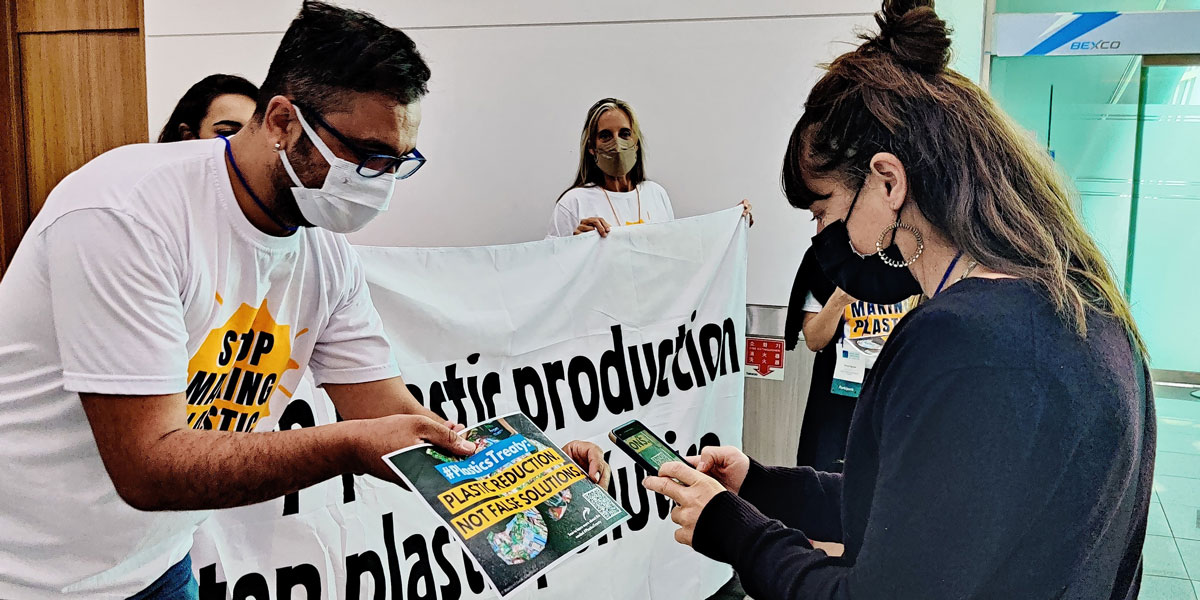
In a demonstration following a plenary session, #breakfreefromplastic members held banners and placards calling for plastic reduction and genuine solutions in addressing plastic pollution.
“To stop plastic pollution, the global plastics treaty must address how to stop plastic production including its harmful toxic additives," said Griffins Ochieng of the Centre for Environmental Justice And Development (CEJAD) Kenya. "This addresses the problem at the root cause, not the symptoms."
“Fast moving consumer goods companies, such as Unilever, Nestle, Coca Cola and Pepsi, are prioritizing investments in false solutions that allow them to rely on single use plastics,” said Satyarupa Shekhar, Asia Pacific Regional Coordinator of Break Free From Plastic. “They engage third-party services to collect and dispose of plastic waste in cement kilns and incinerators, all the while making public statements that frame plastic pollution as a marine debris problem. These businesses must switch to delivering their products without using single-use plastics (SUPs) and hiding behind false solutions and false narratives.”
Members also invited 7IMDC participants to sign the #StopShippingPlasticWaste petition. Plastic waste from the US, UK, EU, Japan, and Australia, under the guise of ‘recycling’, is often exported to countries across Asia Pacific, Africa, and Latin America. Destination countries lack the infrastructure to deal with this waste, which adversely affects the health of their citizens, and their environment. Waste trade allows plastic production to continue with impunity, and is linked to marine plastic pollution. The petition calls on the world’s top shipping companies to follow the example of CMA-CGM, and stop shipping plastic waste.
Recently, the United States-based organization Ocean Conservancy’s (OC) has publicly apologized for the harm caused by the publication of their 2015 report “Stemming the Tide: Land-based strategies for a plastic-free ocean,” which blamed Asian countries (China, Indonesia, Philippines, Thailand, and Vietnam) for marine plastic pollution. Environment groups together with OC have started a repair and transformative justice process to mitigate the harm caused by the report and debunk false solutions including “waste-to-energy” incinerators and international waste trade that continue to pollute many communities in Asia.
"When countries are allowed to ship off plastic waste, there is no incentive to reduce plastic consumption and waste," said Mageswari Sangaralimgam, Research Officer and Honorary Secretary of Sahabat Alam Malaysia. "Even worse, export destinations, often less wealthy economies with weaker environmental regulations, become saddled with problems of imported plastic waste pollution and trafficking crimes. If we continue these practices, there will be no end to the leakage of plastics into the ocean. Countries should stop exporting plastic waste. When we are forced to deal with our own waste, this will catalyze innovative and real solutions to end plastic pollution."
Meanwhile, an International Negotiating Committee (INC) is set to work on drafting a legally binding global plastics treaty to end plastic pollution, as mandated by the resolution adopted in the last United Nations Environment Assembly (UNEA 5.2). As countries begin the negotiations towards a comprehensive plastics treaty that shall cover measures along the entire life cycle of plastics, #breakfreefromplastic calls for significant plastic reduction measures and leave no room for any false solutions to continue.
Miko Aliño, Break Free From Plastic Project Coordinator for Sachets, said, “With governments calling for a legally-binding plastics treaty and more organizations like Ocean Conservancy shifting away from false solutions, it is a high time for businesses—from petrochemical companies to fast-moving consumer goods corporations—to join this revolution by reducing their plastic footprint. And reduction means putting a cap on plastic production and not misleading everyone with plastic offsets and silver-bullet fixes.”
About Break Free From Plastic— #breakfreefromplastic is a global movement envisioning a future free from plastic pollution. Since its launch in 2016, more than 2,000 organizations and 11,000 individual supporters from across the world have joined the movement to demand massive reductions in single-use plastics and push for lasting solutions to the plastic pollution crisis. BFFP member organizations and individuals share the shared values of environmental protection and social justice and work together through a holistic approach to bring about systemic change. This means tackling plastic pollution across the whole plastics value chain—from extraction to disposal—focusing on prevention rather than cure and providing effective solutions.www.breakfreefromplastic.org
In fact, China is the world's largest producer of plastic. In 2019, there was approximately 63000 kt of plastic waste, including more than 20000 kt of single-use plastic products such as plastic bags, agricultural film, packaging materials, bottles, and launch boxes¹. Simultaneously, with the rapid growth of express delivery services since the 2010s, China's waste of express delivery packaging materials has increased significantly. According to a state-run media outlet, the packaging tape used in China can wrap around the earth 1077 times per year²!
The Chinese government has been attempting to solve the rapidly increasing plastic pollution problem and the environmental damage it causes in China and other countries through legislation. The Chinese State Council issued the Notice of the General Office of State Council on Restricting the Production, Sale and Use of Plastic Shopping Bags in 2007, asking supermarkets and shopping malls not to provide free plastic shopping bags³. In 2017, China announced an unprecedented ban on the import of most plastic waste, resulting in a sharp decline in global plastic waste trade flow⁴. Environmental NGOs in China have played an invaluable role in promoting government legislation during this process. China Zero Waste Alliance is one of China's most critical environmental networks⁵.
The China Zero Waste Alliance was founded in 2011 as one of the first Chinese networks focused on the issue of plastic pollution. As a leading alliance, it has a diverse and dynamic body of Chinese environmental NGOs, activists, scholars, and legal experts. It is entering the next decade after ten years of successful advocacy work in China.
China Zero Waste Alliance focuses on NGO partner capacity building and policy change to increase political will to combat plastic pollution and participate in China's legislative process. Since 2013, the China Zero Waste Alliance has hosted nine national-level conferences on the issue of waste pollution, providing a regular forum for legislators, activists, and research institutions. In 2017, it began providing grants and consultations to deserving organisations. So far, it has assisted over 100 nonprofits and grassroots organisations in launching multi-level actions⁶. Since 2018, the China Zero Waste Alliance has promoted a new "Zero Waste Day" campaign⁷, encouraging people to rethink the hyper-commercial lifestyle in post-modern Chinese society. This campaign has received millions of comments and likes on Chinese social media. Furthermore, the China Zero Waste Alliance has made significant policy advocacy gains. It submitted more than 60 proposals and policy recommendations to various legislative bodies ranging from the national to the local levels and was heavily involved in legislative work. China's legislative development has improved as a result of its efforts as well as those of other environmental organisations, legislators, activists, and academics. By the end of 2020, all cities had already banned single-use plastic cutlery due to domestic legal requirements⁸; on December 31, 2022, this ban will be extended to all areas. According to a study published in Nature, the changes in trade flow have reduced global environmental costs by a total of 2.35 billion euros since China's waste trade ban⁹.
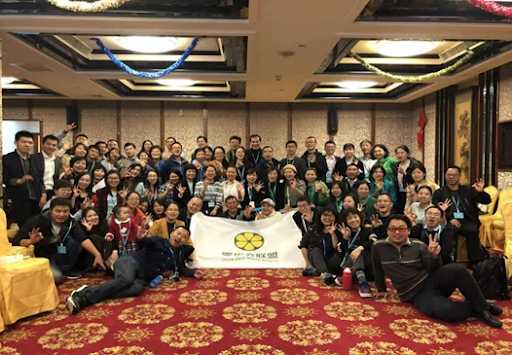
China Zero Waste Alliance 2018 annual meeting in Shenzhen
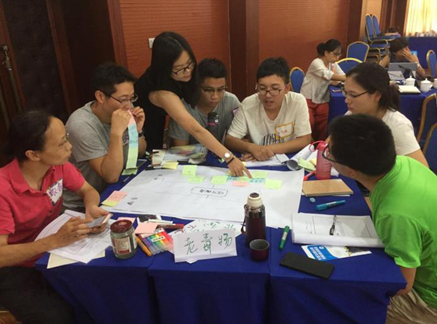
China Zero Waste Alliance partners’ capacity training, 2017
Plastic pollution is worsening in China during the COVID-19 pandemic. Because of concerns about the spread of COVID-19 through reusable items, single-use plastic packaging is widely used. Within the nationwide quarantine, the unrestricted use of disposable plastic bags, takeaway boxes, and masks generates millions of kilos of plastic waste daily. Many environmental NGOs are concerned about the potential environmental pollution caused by using disposable plastic products during the pandemic. The China Zero Waste Alliance and its working partners have launched numerous campaigns and research projects to reduce and control plastic pollution throughout the pandemic¹⁰. In 2021, the China Zero Waste Alliance collaborated with 129 community-based organisations and 685 residential compounds to organise various activities for local residents. The series of activities drew approximately 40,000 residents and reduced 99,903 kilos of plastic waste at the community level. During the pandemic, the building movement was also a priority for China Zero Waste Alliance. The "Zero Waste Day" campaign in 2021 invited 173 organisations and activists to participate¹¹. By the end of the year, the hashtag # ZeroWasteDay had received 23.602 million likes and comments on social media. Meanwhile, the China Zero Waste Alliance proposed 11 policy recommendations on plastic waste regulation at the national level and eventually submitted six of them. It also submitted 8 reports to various governing bodies, including the Ministry of Commerce, the National Development and Reform Commission, and the Hainan Province Department of Ecology and Environment. During the pandemic, China Zero Waste Alliance prioritised movement strengthening by providing grants and consultations to nine grassroots organisations to assist them in implementing new projects. As one of the co-publishers, it released the Guidelines for National Waste Management Strategies on December 10, 2021, the 10th anniversary of the founding of the China Zero Waste Alliance (Chinese Version)¹². During the 2021 pandemic, the China Zero Waste Alliance is also reconsidering the value of its work. In the face of numerous successes and setbacks, they became more aware of the significance of the China Zero Waste Alliance: the network has been working for ten years to address China's plastic pollution and has never given up.
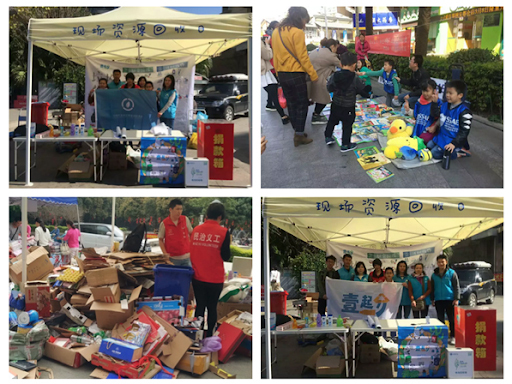
China Zero Waste Alliance partners’ community waste segregation activities
The cooperation between the China Zero Waste Alliance and BFFP could go back to 2016. #breakfreefromplastic (BFFP) held its first global meeting in the Philippines in the summer of 2015, inviting nearly 50 environmental organisations worldwide to develop the BFFP's vision, goals, principles, and strategies. The China Zero Waste Alliance was invited as well. As one of the early members who witnessed the early development of BFFP, China Zero Waste Alliance learned a lot from interacting with BFFP, including strategy learning and international advocacy information sharing. BFFP's work on Narrative Shifting, Zero Waste Cities, and Cooperation has influenced China's early plastic pollution advocacy efforts. In the context of Chinese society, this enables Chinese organisations to initiate actions at a relatively fast pace. The China Zero Waste Alliance and its working partner, Eco-Canton's current initiative to combat plastic microparticle pollution is a good example. The BFFP's international advocacy has inspired regional organisations to engage in relevant advocacy.
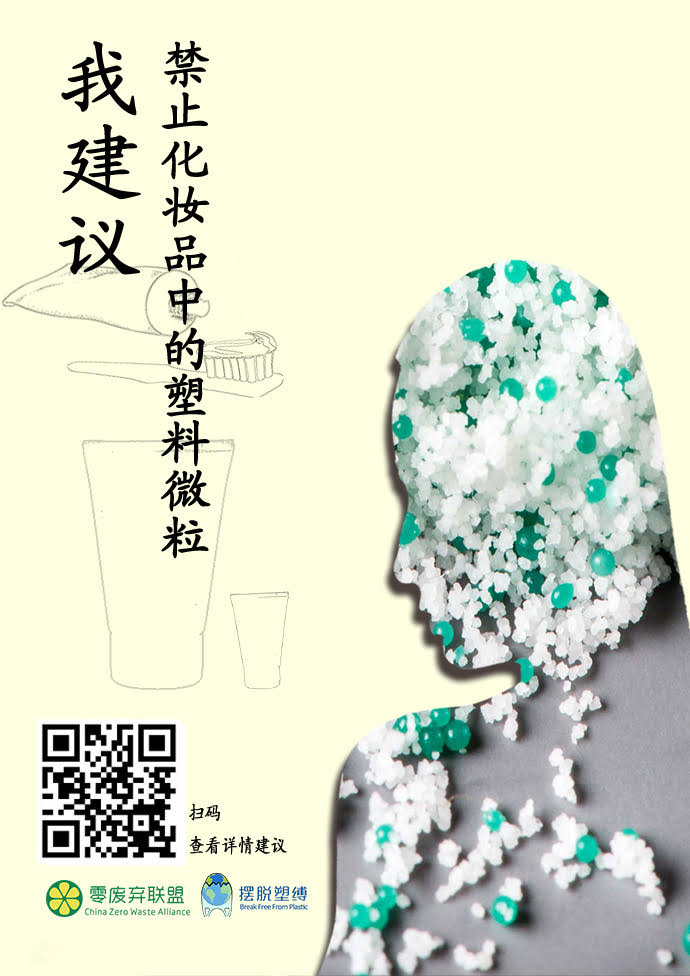
CWZA’s Call for ban on microbead
However, because of China's particular political environment, many successful international advocacy experiences cannot be directly translated into China. This presents a new challenge for Chinese environmental organisations like the China Zero Waste Alliance: how to be successful at home while contributing to global advocacy.
Resources:
[1] Liu, J., Yang, Y., An, L., Liu, Q. and Ding, J. (2021). The Value of China’s Legislation on Plastic Pollution Prevention in 2020. Bulletin of Environmental Contamination and Toxicology. doi:10.1007/s00128-021-03366-6. Available at: https://link.springer.com/article/10.1007/s00128-021-03366-6 [Accessed 28 Aug. 2022].
[2] People's Daily (2020). New Measures to See Gradual Phasing out of Production and Use of Plastic - People’s Daily Online. [online] People’s Daily Online. Available at: http://en.people.cn/n3/2020/0303/c90000-9664293.html [Accessed 28 Aug. 2022].
[3] General Office of the State Council of the People's Republic of China (2007). Notice of the General Office of State Council on Restricting the Production, Sale and Use of Plastic Shopping Bags(国务院办公厅关于限制生产销售使用塑料购物袋的通知). [online] www.gov.cn. Available at: http://www.gov.cn/zwgk/2008-01/08/content_852879.htm [Accessed 28 Aug. 2022].
[4] General Office of the State Council of the People's Republic of China (2017). Notice of the General Office of the State Council on Issuing the Implementation Plan for Prohibiting the Entry of Foreign Garbage and Advancing the Reform of the Solid Waste Import Administration System(国务院办公厅关于印发禁止洋垃圾入境推进固体废物进口管理制度改革实施方案的通知). [online] www.gov.cn. Available at: http://www.gov.cn/zhengce/content/2017-07/27/content_5213738.htm [Accessed 28 Aug. 2022].
[5] Please see its website. Available at https://www.lingfeiqi.org
[6] China Zero Waste Alliance (2022). Annul Review|The 2021 of China Zero Waste Alliance(年度总结丨回顾零废弃联盟的2021). [online] WeChat Official Accounts Platform. Available at: https://mp.weixin.qq.com/s/yLAFobb27s9u2XFkYuA-Sw [Accessed 28 Aug. 2022].
[7] Sina Gongyi (2018). The First Zero Waste Carnival Was over, but the Zero Waste Lifestyle Is Just Beginning首届万科零废弃嘉年华圆满结束,但零废弃生活才刚刚开始. [online] gongyi.sina.com.cn. Available at: https://gongyi.sina.com.cn/gyzx/2018-09-03/doc-ihiixzkm3994322.shtml [Accessed 28 Aug. 2022].
[8] BBC (2020). Single-use plastic: China to Ban Bags and Other Items. BBC News. [online] 20 Jan. Available at: https://www.bbc.com/news/world-asia-china-51171491 [Accessed 28 Aug. 2022].
[9] Wen, Z., Xie, Y., Chen, M. and Dinga, C.D. (2021). China’s Plastic Import Ban Increases Prospects of Environmental Impact Mitigation of Plastic Waste Trade Flow Worldwide.
[10] China Zero Waste Alliance (2020). The pandemic will pass, but ‘YI QI FEN’ is still on going (疫情终将过去 壹起分总在行动. [online] Weixin Official Accounts Platform. Available at: https://mp.weixin.qq.com/s/asNOU6qUnGaajU2rNG0TWw [Accessed 28 Aug. 2022].
[11] Yan, P. (2021). The Fourth Zero Waste Day Was Successfully Held in 70 Cities across China 第四届零废弃日公众倡导活动成功举办 覆盖全国70个城市. [online] www.sohu.com. Available at: https://www.sohu.com/a/485163643_161795 [Accessed 28 Aug. 2022].
[12] Chen, Y. (2021). The Chinese Version of the United Nations National Waste Management Strategy Guide Has Been Released for the First time(联合国《国家废弃物管理战略指南》中文版首次发布. [online] finance.sina.com.cn. Available at: https://finance.sina.com.cn/jjxw/2021-12-15/doc-ikyakumx4208337.shtml [Accessed 28 Aug. 2022].
Manila, Philippines (17 September 2022) - Today, on World Cleanup Day, Break Free From Plastic members are harnessing the power of citizen science and community action to hold corporate polluters accountable for the plastic pollution crisis they have created. The global #BreakFreeFromPlastic movement unites thousands of environmental groups around the world to end plastic pollution for good.
Through its global brand audit initiative, members of the #BreakFreeFromPlastic movement are collectively organizing brand audits in over 40 countries to record data in order to identify the brands responsible for the plastic pollution found in worldwide cleanups and hold those companies accountable. These audits have taken place yearly since 2018, making 2022 the fifth annual global effort.
Spanning every continent except Antarctica, thousands of volunteers are leading creative and impactful brand audits in their communities. This year, brand audits are being held everywhere from the volcanic caldera of Lake Ilopango in El Salvador (CESTA Amigos de la Tierra El Salvador), to a city zoo in downtown Tbilisi, Georgia (The Greens Movement of Georgia), to underwater with scuba divers along the Australian coastlines (Sea Shepherd’s Marine Debris Campaign), to the busiest shopping mall in Nigeria (SRADev Nigeria), to national parks all across the United States (5 Gyres).
In the Philippines, through the Plastic-Free Pilipinas (PFP) network¹, BFFP member groups have organized brand audits in San Juan City to call on top corporate polluters to urgently address the impacts of their plastic production, by shunning false solutions and investing heavily in sustainable reduction strategies and reuse systems. PFP also highlighted that there are existing alternative sustainable solutions spearheaded by communities locally and globally. These are zero waste systems like reuse and refill which corporations can take inspiration from and scale up on a national level.
“We can end plastic clean ups by doubling down on corporate accountability,” said Break Free from Plastic global coordinator Von Hernandez. “For five years in a row, our movement has mobilized thousands of volunteers all over the world to conduct brand audits and hold the companies responsible for driving the plastic pollution crisis to account. While the number of events and locations change each year, the culprits in this story remain the same, and unless these top corporate polluters invest in real solutions that move us away from dependence on single-use plastics, we will continue to see the same brands and companies wreaking havoc on the climate and our environment.”
This year’s brand audits come at the heels of Ocean Conservancy’s (OC) historic retraction of their 2015 “Stemming the Tide” report, which painted Global South countries like the Philippines, Indonesia and Vietnam as the main sources of ocean-bound plastic waste². The organization, which has popularized coastal clean-ups globally, also acknowledged the outsized role developed countries have in the ongoing plastic crisis and apologized for the concrete harms done to developing countries, particularly the promotion of waste incineration as a viable solution. Their retraction also acknowledges that waste management must be paired with greater upstream reduction efforts on virgin plastic production.
Froilan Grate, Regional Director of GAIA Asia Pacific comments, “With the report retraction and the ongoing restorative justice process between Ocean Conservancy and the impacted communities, we hope to encourage Global North-led organizations to take a look and see how they do business with the Global South. We ask that they revisit their practices and operations, listen and talk to people working on the ground and see the reality with their own eyes. The ICC is done every year, but we envision that this year’s Brand Audit would be the starting point where OC’s partners also include brand audits in their programs and help us unmask the real polluters.”
Brand audits are citizen science initiatives that take clean-up activities to the next level by pinpointing the real drivers of pollution. Since its inception in 2018 brand audits have mobilized citizens and activists from different countries in calling for greater corporate accountability and the wholesale cooperation of all sectors of society in dealing with the plastic crisis. Plastics are collected from their respective waste streams and are audited based on brand and plastic type.
"Cleaning up plastic waste has become an impossible task--for every second someone picks up a piece of plastic, thousands more are being churned out by factories around the world," said Greenpeace Campaigner Jefferson Chua. "Coastal Clean Up Day should be renamed Corporate Plastic Reduction Day. The point of doing cleanups is to stop doing clean ups--and this can only happen when companies like Coca-Cola, Nestle and Unilever start massively reducing their plastic production. Until manufacturers start taking reduction seriously, and governments actively mandate bans and reduction measures, we will never see an end to plastic pollution.”
Past brand audits revealed the top corporations as the worst plastic polluters globally, with the likes of The Coca-Cola Company, PepsiCo, Nestlé, Procter & Gamble, Mondelez, and Unilever among those consistently leading the list. The Coca-Cola Company has emerged as #1 Top Plastic Polluter every year since 2018.
“The top plastic polluters appear to be doing everything they can to avoid changing their exorbitant use of single-use plastic. False solutions, broken promises and token pilot projects is all we’ve seen. That is why thousands of ordinary people from around the world go out into their neighborhoods to collect and count plastic - to document corporate pollution and demand change,” said Emma Priestland, Corporate Campaigns Coordinator of Break Free From Plastic. “The very consumers these companies are reliant on are giving their own time and energy to try to get these companies to change. It’s time that these corporate polluters listened to the people and started investing in an end to single-use plastic packaging.”
This year’s global brand audits have been made possible through the contributions of more than 3 million participants of the Dutch Postcode Lottery, and support from the Plastic Solutions Fund.
Special thanks to Greenpeace Philippines, a founding core member of the Break Free From Plastic movement, for their leading contribution to this press release.
About Break Free From Plastic – #breakfreefromplastic is a global movement envisioning a future free from plastic pollution. Since its launch in September 2016, over 11,000 non-governmental organizations and individuals from across the world have joined the movement to demand massive reductions in single-use plastics and to push for lasting solutions to the plastic pollution crisis. These organizations share the common values of environmental protection and social justice, and work together through a holistic approach to bring about systemic change. This means tackling plastic pollution across the whole plastics value chain—from extraction to disposal—focusing on prevention rather than cure and providing effective solutions. www.breakfreefromplastic.org.
###
Note to Editors:
To view the brand audit website and previous years’ reports, click here.
[1] Greenpeace Philippines, Global Alliance for Incinerator Alternatives, Mother Earth Foundation, Ecowaste Coalition, and Health Care Without Harm
[2] Stemming the Tide statement of accountability (2022), Ocean Conservancy.
Press Contacts:
• Global: Caro Gonzalez | caro@breakfreefromplastic.org, +1 (646) 991-1013
• Asia Pacific: Eah Antonio | eah@breakfreefromplastic.org, (+63) 927-827-7960
• Europe: Bethany Keeley | bethany@breakfreefromplastic.org, (+44) 7903-569-531
• United States: Brett Nadrich | brett@breakfreefromplastic.org, +1 (929) 269-4480
Break Free From Plastic’s brand audit initiative is supported by:
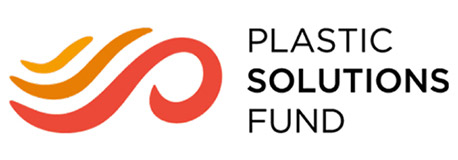
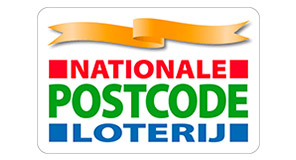
The BFFP Youth Ambassador Program is a platform where youth leaders from all around the world come together to represent their generation’s stance on plastic pollution.
This year, we are joined by 26 young leaders who are involved in various zero waste campaigns and plastic-free projects with their own local organizations in 17 countries. The BFFP Youth ambassador program helps create capacity for young people to lead change in their local communities and international spaces, and support them in contributing to bigger upstream solutions to end plastic pollution for good. These ambassadors go through training, mentorships, and facilitated discussions where they coalesce to determine the BFFP Youth Network’s strategic priorities, calendar, and mobilization plans.
Our Youth Ambassadors this year are from Australia, Brazil, Canada, India, Indonesia, Kenya, Nigeria, the Philippines, South Africa, Sri Lanka, Taiwan, Tanzania, Thailand, Uganda, United Kingdom, USA, and Panama.
Celebrating power in diversity, these young leaders are committed to learn from each other while also elevating their united position towards what it actually takes to solve the plastic pollution problem. They are guided by the Break Free From Plastic Youth Manifesto, that contains the demands, commitments, and strategized action of the BFFP Youth Network within and outside the movement, drafted during the BFFP Youth Summit 2022.
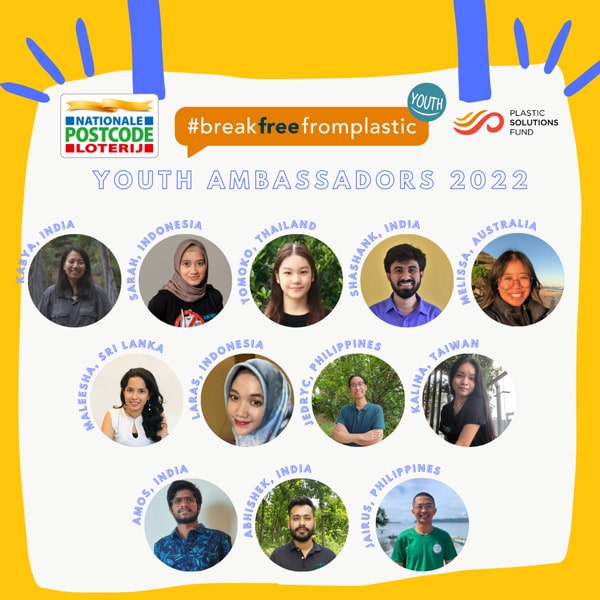
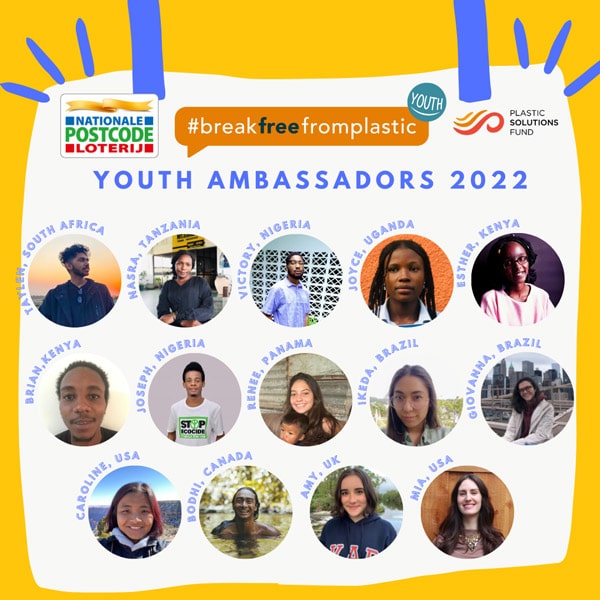
My name is Rachel Radvany and I work for the Center for International Environmental Law (CIEL). CIEL uses the power of law to protect the environment, promote human rights, and ensure a just and sustainable society. We are an international organisation, but I am personally based in Washington, DC in the US.
I am 22, and after graduating from university last year, I joined CIEL to work on plastics policy. What brought me to work on plastics was the realisation of just how inextricably linked the plastics crisis is with other planetary crises. Though plastic has largely been framed publicly as a waste problem, it is also a climate problem, a health problem, and an environmental justice problem. It is not just about plastic in our oceans, it is about petrochemical facilities in people’s backyards and toxic chemicals in children’s toys and plastics as the Plan B for the fossil fuel industry. Breaking free from plastic means ending the toxic impacts of plastic all throughout its lifecycle.
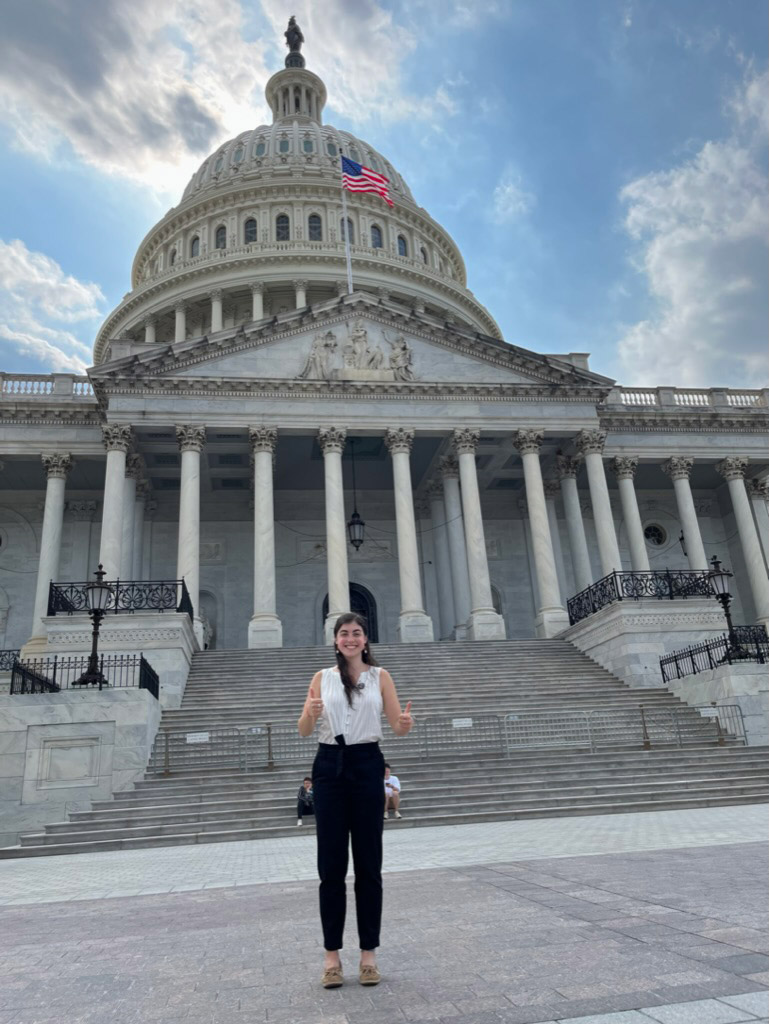
Rachel Radvany at BFFP-US Lobby Week, June 2022, CIEL, 2022
On 12 August, we celebrate the International Youth Day, what would you say the engagement of youth on plastic is like?
There are incredible youth leaders around the world engaging on the issue of plastic. Activists, educators, scientists, and other young leaders are advocating for action and legislation all across the plastics life cycle – single-use plastic bans, development of reuse systems, restrictions on toxic chemicals and additives in plastic, and an end to the fossil fuel economy. Youth participation is key in these topics, as we are advocates for future generations. However, youth engagement could be enhanced.
At the United Nations Environment Program (UNEP), youth organisations engage through the Children and Youth Major Group, one of the nine groups in the Major Groups system, which allows young stakeholders to participate in UNEP processes and provide valuable input into discussions.
At the Open-Ended Working Group in late May, that set the stage for the Global Plastics Treaty negotiations, one of the dialogue sessions during the meeting focused on engaging youth in solving this crisis. One of the speakers pointed out the lack of young people at the meeting, and emphasised how important it is to actively engage youth in these processes in the future. Some countries are working to proactively include youth in these meetings, but this is not yet the norm. The voices of young people, especially those from the Global South, need to be heard in this conversation.
Why do you think the Global Plastics Treaty is so important?
The Plastics Treaty is an incredible opportunity to coordinate and catalyse global action on plastic pollution. CIEL and partners have been working with a robust coalition of civil society organisations to advocate for the most ambitious treaty possible.
BFFP shifts the narrative towards system change and exposing the roots of the plastics problem. The plastics supply chain is based on and deeply interlinked with global systems of exploitation and colonialism. Plastic production’s toxic impacts disproportionately harm frontline communities around the world, the toxic impacts of plastic use particularly affect women and children, and countries in the Global North export their plastic waste to Global South countries. It has become abundantly clear that in solving the plastics crisis goes hand-in-hand with tackling the other existential crises of our time.
The work that BFFP and its members have been doing around the world challenging the plastics industry and pushing for real solutions is laying the groundwork for an ambitious treaty. One of the best examples of this is seen in the mandate for the treaty: to address the “full life cycle of plastic,” not just plastic in the oceans. This is a huge shift in perspective, due in large part to the work of BFFP and its members.
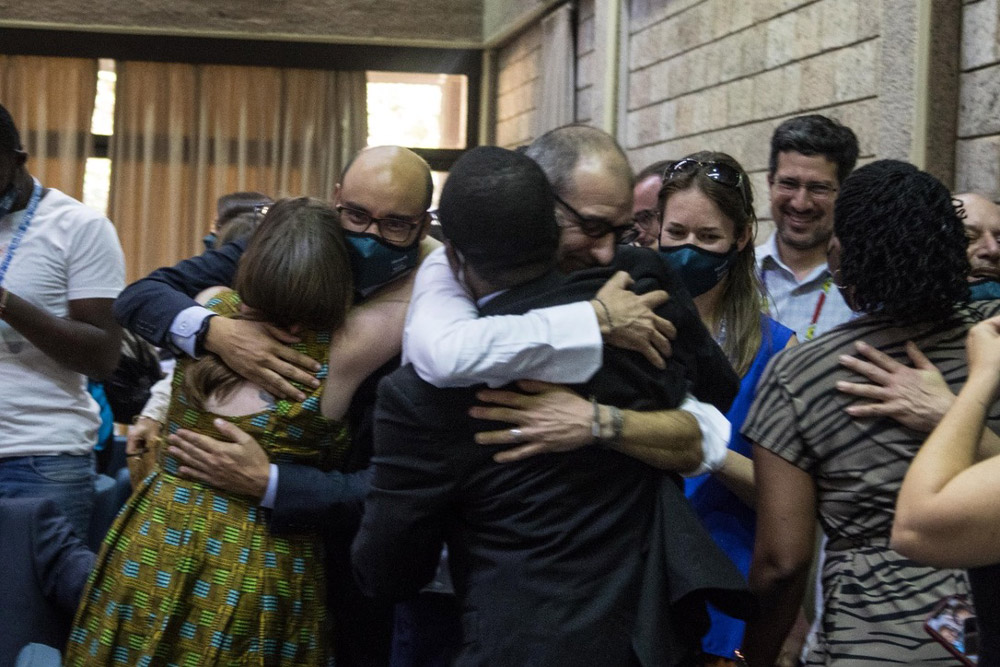
#breakfreefromplastic celebrate mandate for the Global Plastics Treaty at UNEA 5.2, March 2022, CIEL 2022
Tell us: what’s to come from the process?
We are starting to gear up for the beginning of the actual treaty negotiations. There has been a lot of civil society engagement in the process thus far, but we have an opportunity to expand and reach more groups, organisations and individuals. It is expected that this treaty will address the plastic crisis from production to disposal, but it will take a collaborative effort to get some of the key provisions in there. Since plastic has so many dimensions and pathways for harm, it is so important to have as many diverse perspectives, including youth perspectives, as possible in these conversations, to make sure this treaty does its job at ending harm from plastic pollution. Supporting these negotiations and making it clear to delegations that there is a strong call out there for real, ambitious solutions will strengthen the treaty.
At the same time, this is a two year process, and plastic production is increasing as we speak. Action today on the national, regional, and local levels will be essential to supplementing the negotiations of the treaty – both to take action while the text is being written and also to provide examples for the treaty of real solutions working on the ground. Legislation, movement building, and narrative shift – all pillars of BFFP’s work – will all be indispensable for supporting the treaty work and of course for addressing the plastics crisis.
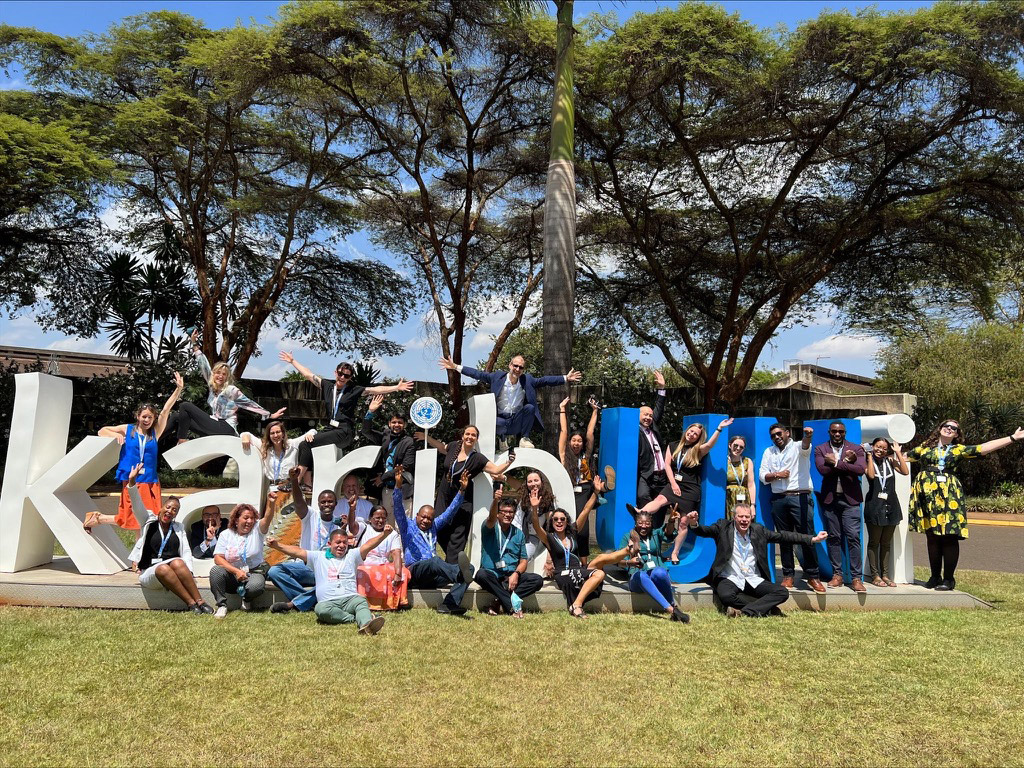
#breakfreefromplastic at UNEA 5.2, March 2022, CIEL 2022
Why do you think it is important for youth to be involved in this line of work (plastic and environmental protection in general)?
I recently learned that 42% of the world’s population is under the age of 25, which means that more than half of the plastics ever made have been produced in our lifetimes. We’ve been born into this system that is contributing to the planetary crises that are threatening our future and the ability of future generations to survive and thrive on this planet.
Young people are looking at spending the rest of our lives wrestling with difficult existential questions. It is pretty terrifying to think about living in a world with frequent natural disasters as the new normal, parts of the Earth becoming unlivable, babies being born pre-polluted with toxic chemicals, and more.
But at the same time, we are also seeing a shift in consciousness. For years, the plastic problem has been framed as a waste issue, with the onus and responsibility on the consumer to separate and recycle every piece of plastic we buy. But the narrative is shifting: people are finally recognizing we have been misled. Solving the plastics crisis will take more than individual actions, it will take a movement. And young people already are, and must continue to be an integral part of that movement.
What is the most outlandish statement, argument or activity you have seen or heard of in connection to plastic that you think everybody should know about?
Two quotes that I think everyone should hear are:
"There is serious doubt that [recycling plastic] can ever be made viable on an economic basis," and
"If the public thinks that recycling is working, then they are not going to be as concerned about the environment"
The first quote is from a 1974 plastics industry speech, and the second is from a former president of the Plastics Industry Association, an industry trade group. The plastics industry knew that recycling would not work, as the California Attorney General is currently investigating further, and they still tried to convince consumers of its benefits in order to deflect the blame for this crisis.
We would like to express our thank you towards Rachel Radvany for taking the time to reply to our questions.
On July 27, 2022, independent freelance journalists Vedat Örüç and Elif Kurttaş, were attacked while visiting an industrial area with dozens of recycling facilities in Adana, Türkiye. According to a post on Twitter by Vedat Örüç, the journalists entered a plastic recycling facility with permission from a facility’s employee. They were working on a story, interviewing companies importing waste for a Gezegen24 news piece. Turkey is one of the largest importers of plastic waste from the European Union.
The journalists were physically assaulted and threatened to be killed, and their media equipment was confiscated. Örüç and Kurttaş have filed criminal charges against the owners of the facility. According to the journalists’ statements, there were many asylum seekers and immigrants working at the site who appeared to be illegally employed. The journalists alleged that illegal labor exploitations in these facilities may be the motivation behind the attack.
This is not the first time journalists or activists investigating the global plastic waste trade have been attacked or threatened.
In Indonesia, journalists hesitated to investigate waste trade cases due to the potential risk of cancellation of their media permits. Some journalists were reportedly told not to continue their investigations when they found a connection between the plastic waste trade and a senior Indonesian minister and political leader. When the BBC film crew and Nexus3 team covered the story in Bangun village, two persons asked them to stop filming. A similar incident occurred in Tangerang when the PBS Frontline crew was filming illegal dumping sites.
In Malaysia, journalists and activists investigating pollution caused by imported waste have been followed, intimidated, or verbally threatened. One activist had paint splashed on her home by gang members. In another incident, a factory owner was beaten up after he filmed illegal recycling taking place after a facility was raided and sealed by the local authorities.
In addition to attacks on people investigating the global plastic waste trade at sites for imported plastic waste recycling, causing environmental and human harms, the transnational shipment of waste is also linked with illegal activities. Since 2018, INTERPOL has documented a rise in illegal activities associated with the global waste trade. The Global Initiative Against Transnational Organized Crime (GITOC) also reported that shipping plastic waste to countries including Turkey and Indonesia has strong links with organized crime, including illicit trafficking of waste, money laundering, and financial crime.
Freedom of speech and press is critical for understanding the impacts of the global plastic waste trade on people and the environment. Physically attacking and detaining journalists is a clear violation of freedom of the press and freedom of speech.
We, the institutions and organizations named below, stand by the journalists and activists who are investigating the global plastic waste trade, including Vedat Örüç and Elif Kurttaş.
We condemn this attack on freedom of speech and call on the local authorities to investigate this incident fully and transparently.
We demand that both importing and exporting countries acknowledge their complicity in criminal waste trade networks and enact policies to phase down the export of plastic waste, as well as enhance protections for environmental defenders.
The UN General Assembly has adopted a resolution declaring that access to a clean, healthy and sustainable environment is a universal human right, and all States have a duty to scale up commitments to protect the environment based on legal human rights obligations.
Küresel plastik atık ticareti konusunda araştırma çalışmaları yapan gazeteciler saldırı altında
27 Temmuz 2022'de bağımsız gazeteciler Vedat Örüç ve Elif Kurttaş, Adana'da onlarca geri dönüşüm tesisinin bulunduğu bir sanayi bölgesini ziyaret ederken saldırıya uğradı. Vedat Örüç'ün Twitter'dan yaptığı açıklamaya göre gazeteciler, bir tesis çalışanından izin alarak plastik geri dönüşüm tesisine girdi. Gazeteciler Türkiye, Avrupa Birliği'nin en büyük plastik atık ithalatçılarından biri olduğu için bu durumu araştırmak ve Gezegen24 platformunda yayınlamak üzere plastik çöp ithal eden firmalarla röportaj yapıyorlardı.
Bu araştırma esnasında gazetecilerin de beyanlarından anlaşılacağı üzere, gazeteciler fiziksel saldırıya uğradı ve öldürülmekle tehdit edildi. Bunun yanında gazetecilerin bazı kayıtlarına da el konuldu. Bu olay üzerine Örüç ve Kurttaş, tesis sahipleri hakkında suç duyurusunda bulundu. Gazetecilerin açıklamalarına göre, sitede çalışan ve yasadışı olarak çalıştırıldığı düşünülen çok sayıda sığınmacı ve göçmen vardı. Gazeteciler, bu tesislerdeki yasadışı emek sömürülerinin saldırının arkasındaki motivasyon olabileceğini iddia etmektedirler.
Bu olay, küresel plastik atık ticaretini araştıran gazetecilerin veya aktivistlerin saldırıya uğradığı veya tehdit edildiği ilk olay değil.
Endonezya'da da benzer bir olayda gazeteciler, medya izinlerinin iptal edilmesi riski nedeniyle atık ticareti davalarını araştırmaktan vaz geçmek zorunda kalmışlardı. Bazı gazetecilere plastik atık ticaretinde üst düzey bir Endonezyalı bakan ve siyasi liderin de karıştığı ilişkiler ağını tespit ettikleri soruşturmalarına devam etmemelerinin söylendiği bildirildi. Olayı araştırmak üzere Endonezya’nın Bangun köyünde bulunan BBC ve Nexus3 kuruluşundan hikayeyi ekibe, iki kişi çekimi durdurmalarını dayatmıştı. Benzer bir olay yine Endonezya Tangerang'da yasadışı çöp boşaltma alanlarını filme alan PBS Frontline ekibinin de başına gelmişti.
Malezya'daki benzer bir olayda, ithal edilen atıkların neden olduğu kirliliği araştıran gazeteciler ve aktivistler kimliği belirsiz kişilerce takip edilmiş ve tehdit edilmişti. Bu olayla bağlantılı olarak araştırma ekibindeki bir aktivistin evi çete üyeleri tarafından korku vermek amacıyla boya ile işaretlenmişti.
Küresel plastik atık ticaretini yerinde araştıran gazetecilere ve buna karşı mücadele edenlere yönelik, çevreye ve insan sağlığına zarar veren kişilerin saldırılarına ek olarak, atıkların sınırı aşan taşınımının da yasa dışı faaliyetlerle bağlantılı olduğu birçok araştırma ile ortaya konulmuştur. INTERPOL, 2018'den bu yana, küresel atık ticaretiyle bağlantılı yasa dışı faaliyetlerde bir artış olduğunu ortaya koymuştur. Uluslararası Örgütlü Suça Karşı Küresel Girişim (GITOC), Türkiye ve Endonezya dâhil çeşitli ülkelere plastik atık göndermenin, yasadışı atık kaçakçılığı, kara para aklama ve mali suçlar dâhil olmak üzere organize suçlarla güçlü bağları olduğunu ortaya koymuştur.
Hem ithalatçı hem de ihracatçı ülkelerin, atık ticaret ağlarındaki suç faaliyetlerini göz ciddiye alarak plastik atık ticareti faaliyetlerini azaltacak politikaların yanı sıra çevre savunucuları için korumayı artırmalarını talep ediyoruz.
BM Genel Kurulu, temiz, sağlıklı ve sürdürülebilir bir çevreye erişimin evrensel bir insan hakkı olduğunu ve tüm devletlerin yasal insan hakları yükümlülüklerine dayalı olarak çevreyi koruma taahhütlerini artırma görevi olduğunu bildiren bir kararı kabul ettiğini hatırlatarak, aşağıda adı geçen kişi, kurum ve kuruluşlar olarak, aralarında Vedat Örüç ve Elif Kurttaş'ın da bulunduğu küresel plastik atık ticaretini araştıran gazeteci ve aktivistlerin yanında olduğumuzu belirtiriz.
İfade ve basın özgürlüğü, küresel plastik atık ticaretinin insanlar ve çevre üzerindeki etkilerini anlamak için kritik öneme sahiptir. Gazetecilere fiziksel saldırı ve alıkoyma, basın ve ifade özgürlüğünün açık ihlalidir. İfade özgürlüğüne yapılan bu saldırıyı kınıyor ve yerel ve ulusal makamları bu olayı tam ve şeffaf bir şekilde soruşturmaya çağırıyoruz.
Statement endorsed by [Destekleyiciler (Alfabetik sırayla)]:
The United States-based organization Ocean Conservancy (OC), on 11th July 2022, issued a long-overdue apology to more than seven hundred organizations for the harm caused by the publication of their 2015 report “Stemming the Tide: Land-based strategies for a plastic-free ocean”, expressing its willingness to take responsibility for the damage caused by the publication.
Froilan Grate, Regional Director of the Global Alliance for Incinerator Alternatives (GAIA) – Asia Pacific comments:
“The OC report not only harmed the five countries wrongfully blamed for plastic pollution, but misled for years governments and the public into thinking that burning plastic waste was a solution to the problem.”
“The apology is an invitation to hear the voices and concerns of communities and groups in the Asia Pacific region who have been disproportionately impacted by this framing, and for whom this issue is very personal. This is a time for the rest of the world to listen and follow their lead.“
When it was released, the OC report was instrumental in putting the onus for plastic waste on five Asian countries (Philippines, China, Indonesia, Vietnam, and Thailand), completely disregarding the role of countries in the Global North for their overproduction of plastic and plastic waste exports to developing countries under the guise of “trade”. The report also promoted incineration as a “solution” to the plastic pollution problem, enticing governments to adopt incineration, exposing their citizens to health risks, and enabling further plastic production with the myth that we can simply burn our plastic pollution problems away.
Since then, more than seven hundred organizations signed a letter exposing the damaging impacts of such inaccurate framing. For years, environmental groups worked to correct the narrative by 1) providing evidence about the entities primarily responsible for the tonnes of plastic waste ending up in the environment, namely the Global North corporations producing and selling plastic; and 2) debunking false solutions like waste incineration, “Waste-To-Energy”, and Chemical Recycling that cause further damage to vulnerable communities while doing little to curb plastic production.
After receiving the apology, several of the impacted groups are engaging in a repair and transformative justice process with OC to identify ways to mitigate the harm caused. Currently, GAIA, together with its members and allies from the #breakfreefromplastic movement, is leading a series of conversations with Ocean Conservancy to identify the path forward.
Grate adds,
“We are taking the first step with OC towards restoring the much-needed justice for the impacted communities in Asia. We feel hopeful that the outcome of this process will be healing and will repair some of the harm caused, and committed to keeping our community involved in the next steps of this conversation, and informed once concrete outcomes have emerged from this process.“
Contact:
Sonia Astudillo, GAIA Asia Pacific Communications Officer | sonia@no-burn.org | +63 917 5969286
Froilan Grate, GAIA Asia Pacific Regional Director | froilan@no-burn.org | +63 977 806 7653
###
About GAIA – GAIA is a worldwide alliance of more than 800 grassroots groups, non-governmental organizations, and individuals in over 90 countries. With our work we aim to catalyze a global shift towards environmental justice by strengthening grassroots social movements that advance solutions to waste and pollution. We envision a just, zero waste world built on respect for ecological limits and community rights, where people are free from the burden of toxic pollution, and resources are sustainably conserved, not burned or dumped.
About Break Free From Plastic – #breakfreefromplastic is a global movement envisioning a future free from plastic pollution. Since its launch in 2016, more than 2,000 organizations and 11,000 individual supporters from across the world have joined the movement to demand massive reductions in single-use plastics and push for lasting solutions to the plastic pollution crisis. BFFP member organizations and individuals share the shared values of environmental protection and social justice and work together through a holistic approach to bring about systemic change. This means tackling plastic pollution across the whole plastics value chain—from extraction to disposal—focusing on prevention rather than cure and providing effective solutions.www.breakfreefromplastic.org
I am Muriel Papin, the head of the NGO No Plastic In My Sea. We are a French organisation, based in Paris, whose mission is to tackle plastic pollution at source.
We raise awareness about the strong correlation between plastic pollution and plastic overproduction and campaign to create conditions for reduction. We help organisations and consumers to decrease their use of plastic, particularly single use plastic, and support the transition to reuse.
We have a completely Break Free From Plastic mindset and were very happy to join the movement in 2020. As a small NGO, it is very important for us to be “fed” with new information and be connected to the many different kinds of expertise within the movement. This really helps empower us and the work we do and increase our legitimacy.
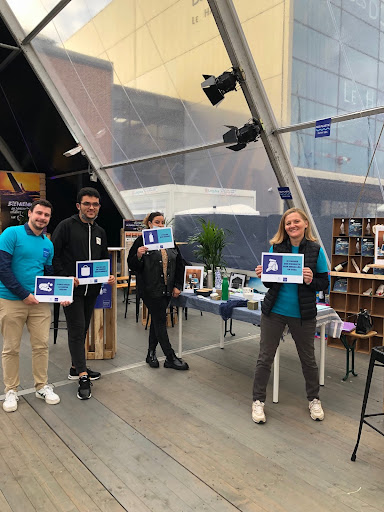
Why is plastic pollution an important issue for your organisation? What’s the story?
Tackling plastic pollution is the purpose of our organisation.
We were founded in 2018 and our first activities focused on building up awareness campaigns, like the “No Plastic Challenge”, which mobilises people and organisations across 10-15 days to measure their plastic consumption, commit to reduction and amplify the action.
At the beginning, the event was only present on social media. As years have passed, the event has grown and we have optimised it through developing toolkits for participating organisations (schools, colleges, sport clubs and companies). Currently, around 500 ambassadors lead the event across France and help us engage several thousands of people.
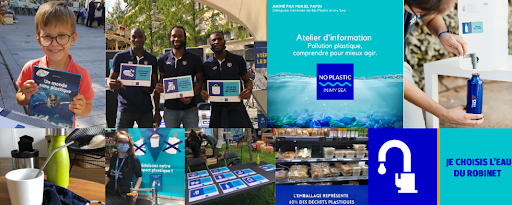
Our two other main actions are:
• Our influence and advocacy campaigns on promoting tap water and on reuse solutions.
• Sourcing relevant solutions existing on the market, in order to help the shareholders to give up with plastic use. In 2020, we published a “Plastic pollution solutions benchmark” that sourced 300 solutions of reduction, reuse, bulk, and eco-conception.
Tell us more about your ongoing campaign(-s)/activity(-ies)
Over the past year, we have increasingly been participating in several taskforces and campaigns within BFFP Europe, which has helped us in our own campaigns.
In France, people consume a lot of water from plastic bottles. To help with reducing the number of plastic bottles bought, we have a campaign on promoting tap water. We have succeeded in garnering a lot of support from many actors including NGOs, companies and public organisations by promoting tap water use in the press and on social media. We also engaged some actors like Lush to offer refill points.
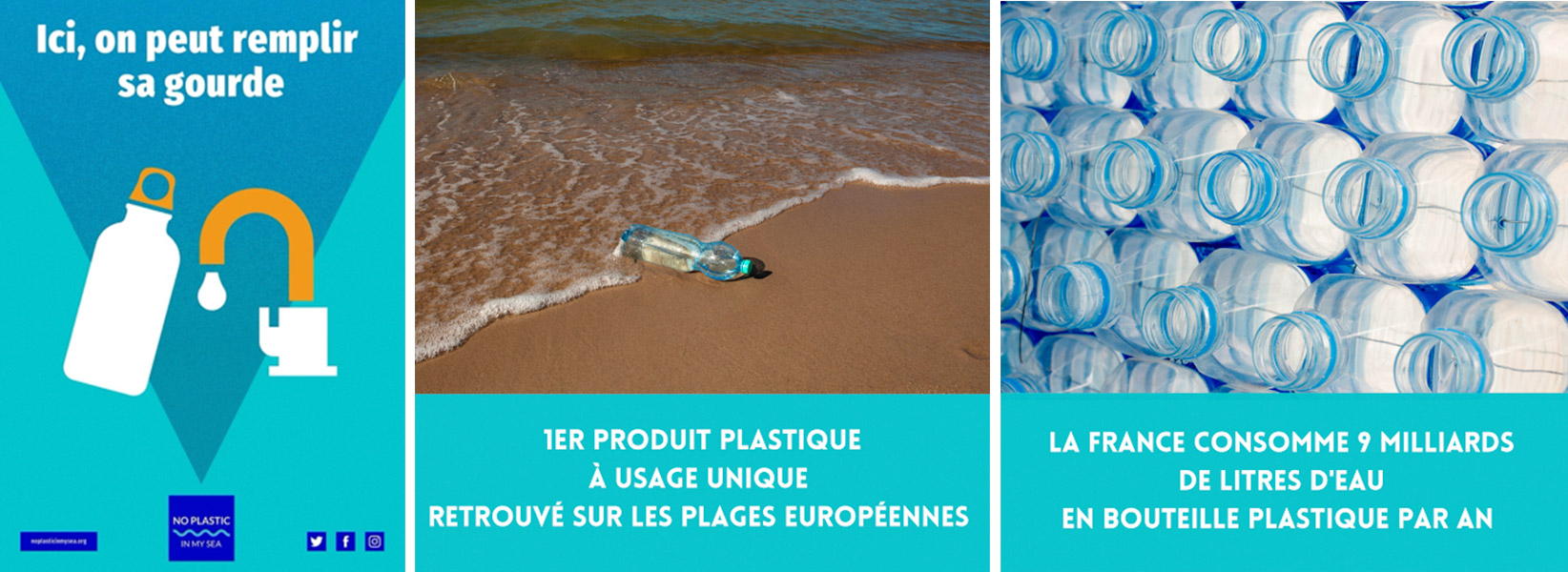
We are very involved in the reuse movement and strongly support the “#WeChooseReuse campaign in France. We have engaged a lot of companies who have become signatories of the open letter. And we have organised several webinars on this issue.
As a member of #breakfreefromplastic’s Corporate Accountability task force, we have worked with Changing Markets Foundation on the Fossil Fashion campaign and on the Under Wraps report.
This collaboration has provided plenty of inspiration and pushed us to launch our own enquiry on the take away food sector in France. In 2021, we published a report that challenged the sector’s lack of engagement in reducing plastic waste, despite the anti-waste law. Our report had very good press coverage and was helpful for the reuse companies trying to push a transformation in this sector.
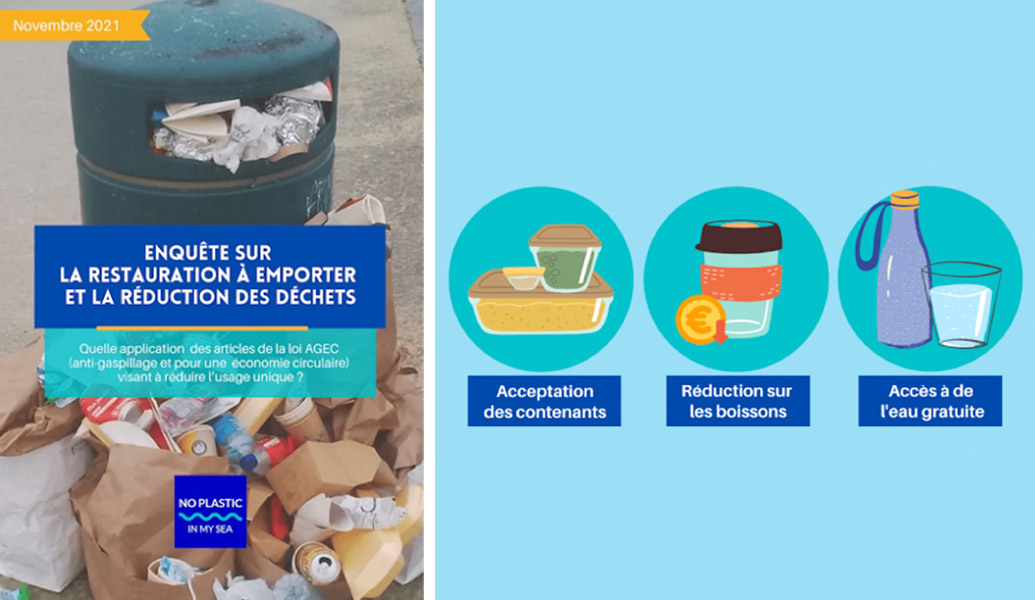
And last but not least, we have also been very shocked by all the studies about health risks of plastic pollution and we have been collaborating with experts on the issue. We have recently published a synthesis of the most concerning studies, shared it with the media and we have organised a conference on this issue.
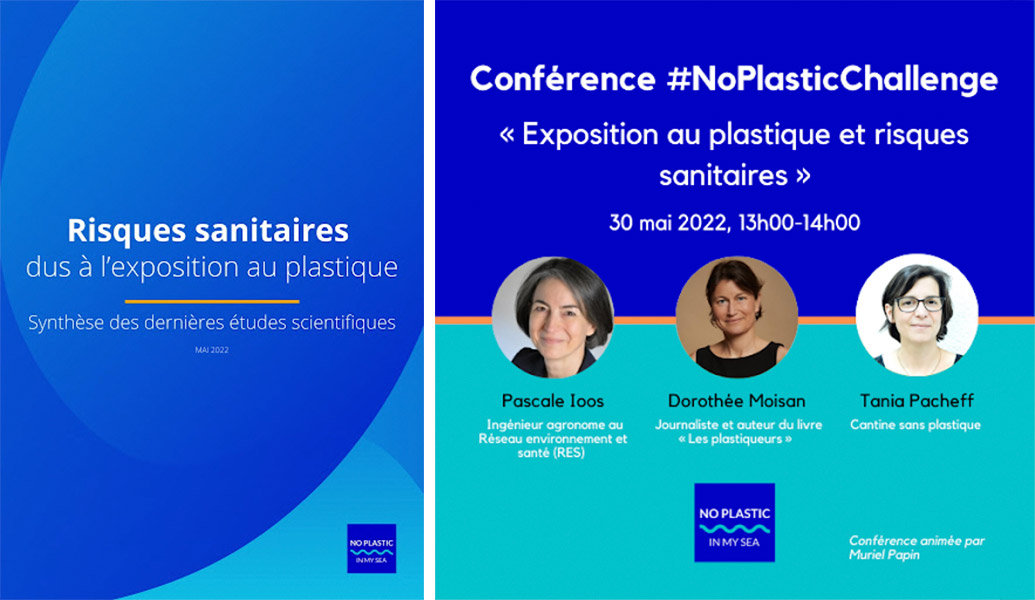
Takeaways and looking forward:
At the beginning of 2020, we had some hope that the fight against plastic pollution would be supported by France’s new anti-waste Law. But the pandemic provided some setbacks. Recycling is still widely supported and understood as being a solution to plastic pollution. Despite having a very dynamic reuse ecosystem, this approach is not encouraged or funded enough. Moreover, we currently face a complicated political time in France and we do not know how the government will respond to the plastic pollution crisis or circular economy issues in the future (energy issues dominate current environmental discussions).
For the moment, we see three main ways to leverage our actions.
Firstly, we will monitor international improvement and share them across France in order to maintain a high level of ambition. For instance, we have recently shared with the media an Overview of European regulations promoting reuse and reduction. We hope the Packaging and Packaging Waste Directive in November will give a strong signal in favour of reuse.
Secondly, we believe that all the plastics externalities are still unknown or underestimated and we will continue to reveal them, especially on the issues of health risks.
Finally, we will continue to challenge the “business as usual” models and develop coalitions with all stakeholders involved in reduction and reuse, in order to increase media coverage of these solutions… and make them mainstream one day.
What keeps you fighting for a future free from plastic pollution?
To be honest, sometimes we can be desperate and afraid to fail against the plastic monster. To keep up our the energy, we need the best carburant on the market: a mix of victories and hope. And thanks to the BFFP movement, there are many reasons to feel confident, especially with the perspective of an international global plastics treaty!
We would like to thank Muriel Papin, head of the NGO No Plastic In My Sea, for taking the time to reply to our questions.
The event was co-organised by Break Free From Plastic (BFFP) and the European Environmental Bureau (EEB), in partnership with the Geneva Beat Plastic Pollution Dialogues.
You can access the live recording and detailed summary of the event here.
The United Nations Sustainable Development Goal 14 stresses the need to ‘conserve and sustainably use the oceans, seas and marine resources for sustainable development’. Yet, conversations on ocean pollution rarely touch upon the plastic waste trade, wherein high-income countries ship their plastic waste to the majority world.
Plastic waste shipments contribute enormous amounts of plastic pollution, microplastics, and chemical additives to the ocean — irrevocably harming our health, wildlife, and ecosystems. The export of plastic waste creates the delusion of circularity for a material that is inherently linear, allowing us to perpetuate our dependence on plastics.
Inspired by the documentary ‘The Recycling Myth’, this panel tackled the issue of plastic waste trade with experts from around the world:
• Patrizia Heidegger, Director for Global Policies and Sustainability at the European Environmental Bureau, Belgium
• Dr Sedat Gündoğdu, Associate Professor, Cukurova University, Turkey
• Dr Daru Setyorini, Program Development Manager, ECOTON, Indonesia
• Jane Bremmer, Campaign Coordinator, National Toxics Network, Australia
• Jan Dell, Chemical Engineer & Founder of The Last Beach Cleanup, United States
• Benedict Wermter, Co-Director of The Recycling Myth, Germany
The session was moderated by Pui Yi Wong, Waste Trade Coordinator, Break Free From Plastic - Asia-Pacific.
Waste trade is a key creator and conduit of marine pollution. Research indicates that plastic waste trade contributes significantly to ocean plastic pollution, marine microplastics, and toxicity in the environment, especially around illegal dumpsites where burning occurs. When transported to countries ill-equipped to manage waste, plastic destined for recycling often leaks into rivers and oceans. Allowing plastic waste trade to continue renders all downstream efforts to stop ocean plastic pollution futile.
The panel discussed both sides of the argument - how the developed countries of the Global North view the trade, and how the developing countries from the Global South receive the dirty exports. The production, manufacture, use, disposal via export, dumping or incineration is the issue, yet the chemical pollution during this plastics lifecycle is the invisible threat to the world’s oceans as well as the planet, and all its biodiversity.
Waste exportation from high consuming countries reflects the colonial exploitation of the majority world. The materials exported are inherently polluting and toxic, and necessitate large amounts of natural resources to process. Despite industry claims, plastics are not recyclable indefinitely, nor is the material circular. When waste is exported, countries shift the blame of who is responsible and foist technical false solutions upon communities in the developing world.
Some of the panel’s key recommendations are:
• We need to reduce the production of plastics, enhance local waste management systems and encourage zero waste practices to effectively tackle ocean plastic pollution.
• Ending plastic waste exports from rich to weaker economies is important to phasing out plastic production, and reducing marine pollution and its negative impacts on marine and human life.
• Partnerships between governments, non-governmental organisations, community groups, waste picker groups, shipping companies, plastic waste exporters and importers, plastic waste recyclers, etc, are vital to phase out the trade of plastic waste.
The takeaway messages from this panel included:
1. We made a huge mistake when we started producing plastic - we need to turn back the tide. Plastics are everywhere and our solutions need to be multi-pronged.
2. To curb plastic production and consumption, we must counter false solutions like chemical recycling, incineration and waste trade.
3. If we are serious about a circular economy, we must rethink plastics, phase out the chemical additives, and redesign systems by following zero waste principles.
4. A plastic waste shipment ban can help develop local waste infrastructure in both developing and developed nations, such as segregation, collection, and recycling capacity. Each country must deal with their own plastic waste.